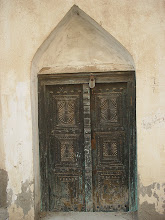Finally contacted all the big hitters at the helm of our MA program, both at Leeds and the local host college. My arguments have been purged of all emotion and distilled to pure and- I hope- compelling- reason. Since it is now 2:17 AM I just hope my judgement can be trusted. Here it is.
I deeply appreciate the fact that you have listened, and continue to listen despite your many other commitments. Indeed, my respect for the department staff continues to grow as I discover more about instructors' thought in books, articles and excavations of the VLE. Your own feedback has been most helpful, and the article by Coleman which you provided on my request (email of 2/1/2008) illuminated "Society and the Language Classroom" (under Coleman's editorship) beautifully. The digital resources offered by the Leeds University website, library and staff are phenomenal and abundant beyond necessity. The resourcefulness and mutual support of co-students are also of inestimable value.
So why am I making such a fuss? I am privileged to have obtained plenty of resources (although several books on our reading list are unavailable) and access to a fast internet connection. My reading is done and my writing has begun. While I deeply appreciate all the kind offers made, I must emphasise that this is not about me. (If it were, I would be silently soldiering away at my assignment armed with what resources I could muster.) The stakes are far higher than that, as I will proceed to explain.
A more complete set of textbooks from the reading list should be supplied to this group at Majan College Library for four compelling reasons which affect all stakeholders.
The first reason why students need access to the recommended books is the structure of the course itself. While other books, journal articles and online resources are invaluable in deepening and updating students' understanding of the core module material, the foundation stones are found in the central collection of textbooks which underpin the compilation of the course. According to the MA TESOL (Oman) handbook (p.31), the course is "relatively lightly taught" and "assumes... a lot of... independent reading." Understanding the fundamentals of the course, then, depends on independent reading of the books that receive cursory mention in lectures. Furthermore, the vital place of the core texts is reflected in the taught postgraduate assessment criteria listed in the handbook (p.35). Both the "Coverage" and "Support" sections refer to "coverage of major sources". This implies the foundational role of "major sources", which may admittedly lie beyond the scope of the recommended readings, but are likely to include at least a viewing of these texts. In short, books on the recommended reading list appear to play a central part, both in the learning and the assessment process. These books are, therefore, vital if students are to understand and produce assignments that do this excellent programme and its tutors justice.
The second is the outcome of this programme. Oman's education system is in serious need of teaching professionals who not only personally identify with the nation but also have deepened, broadened expertise in their field. If this country is to benefit from the postgraduate education of the Omani and other educators in this course, it is imperative that every possible means for the enrichment of their learning be provided. Recommended textbooks are the keystone: a large chunk of it is missing.
The third argument involves the cost of tuition in this course. It struck me that a full-time foreign student at the University of Leeds pays GBP 9700 for a spectrum of modules and access to the multitude of facilities, academic and otherwise, offered by the university. Students in this course have paid the equivalent of GBP 9000 each. The costs of flying faculty, teaching materials and administration considered, the total earnings from 21 students (over GBP 180 000) surely do justify a more complete collection of books from each module's reading list.
Finally, and significantly to every one of us, is the matter of reputation. As has been pointed out, high standards are the pride of both Leeds University and Majan University College. I believe this also holds true for every student in this course, and for the country that is so graciously hosting us. As educators, the students in this course have a significant and lasting effect on our environment. Like pebbles flung into water, our work inevitably creates ever-expanding ripples in our classrooms, organisations, communities and society at large. The quality of these effects will reflect on our value as professionals, but also on the establishments that formed us professionally. The more opportunities we receive to learn, thoroughly, deeply and broadly, the better we are able to represent you.
To sum up, the structure of the course, the societal requirements of future graduates, the expectations set by tuition fees and the reputation of all the stakeholders demand the provision of a more complete set of textbooks to the MA TESOL (Oman) students. The long and the short of it is that with more complete provision of the recommended textbooks, we all win. That, I believe, is worth making a fuss for, and I thank all the staff at both establishments who have patiently heeded my call. I hope I have convinced you that it is a call worth heeding, not on behalf of one rabble rouser, but on behalf of every student, instructor and administrator involved in this promising endeavour.
Subscribe to:
Post Comments (Atom)


2 comments:
Well said - at those (horrendous) costs they should supply you with leather bound notes as well.
Hmmm, this seems to be the opinion of everyone except the powers that be as yet... then again it is Easter break, so I'll cut them a little slack.
Post a Comment